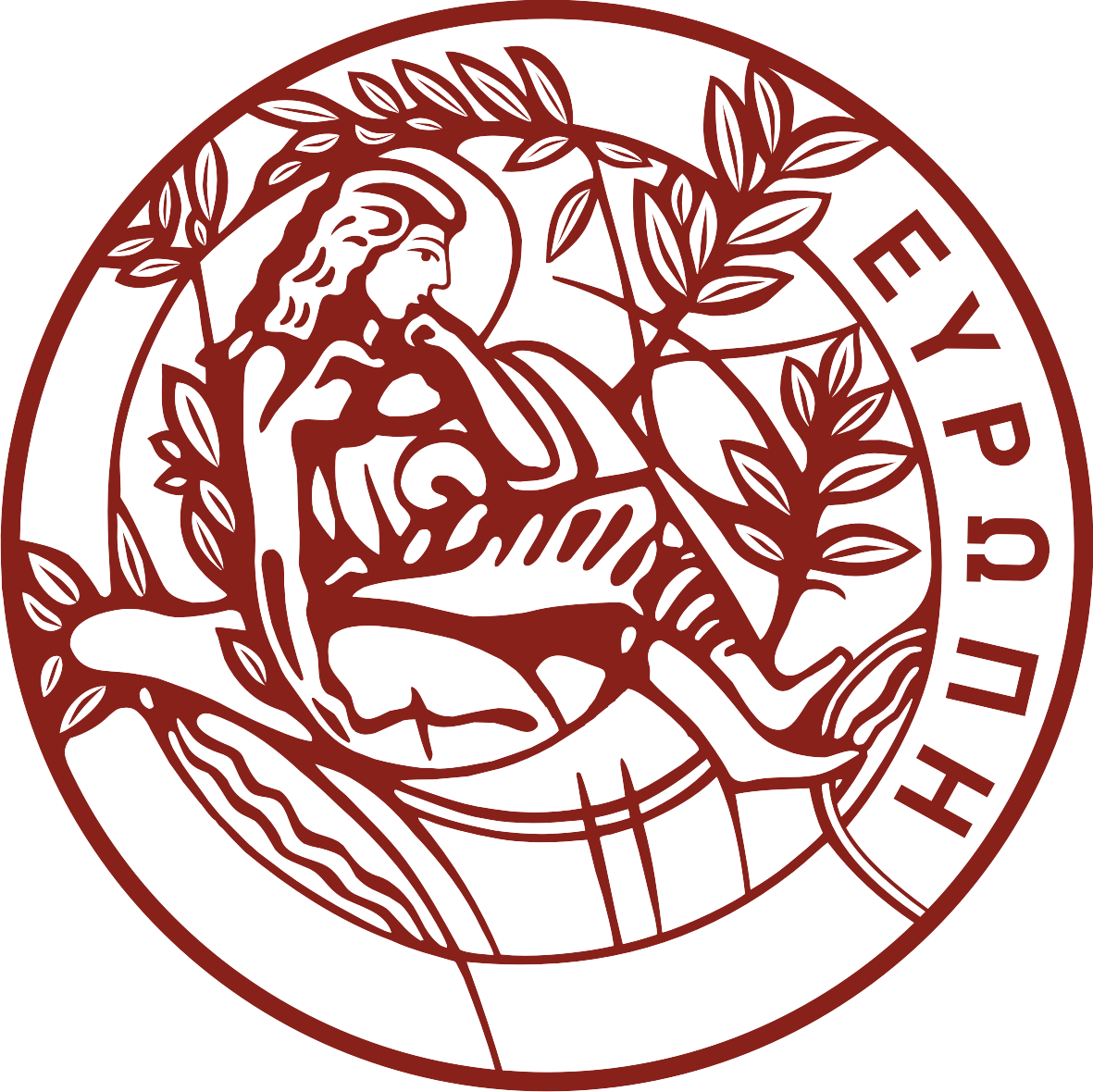Courses catalog
A+
A-
| Offered Postgraduate Cousres | |||||
|---|---|---|---|---|---|
| Code | Course Name | ECTS(ΔΜ) | Prerequisites | Suggested | Areas |
| CS-500 | Introduction to Research | 2 | -- | ||
| CS-508 | Technical Writing in English | 4 | -- | ||
| CS-523 | Digital Systems CAD Laboratory | 6 | CS-220, CS-225 | A, A1 | |
| CS-527 | Parallel Computer Architecture | 6 | CS-345, CS-425 | A, A1, A2, Γ | |
| CS-529 | Multicore Architecture Programming | 6 | CS-345, HY425 | A, A2, B1, B2, Γ | |
| CS-531 | Topics in Information theory | 6 | N/A | B, B2, B4 | |
| CS-533 | Introduction to Research on Computer Networks | 6 | CS-335 | A3, A4, B | |
| CS-534 | Packet Switch Architecture | 6 | CS-225, CS-335 | A, A1, A4, B | |
| CS-539 | Advanced Topics on Wireless Networks and Mobile Systems | 6 | CS-335, CS-345 | A4, B, Γ | |
| CS-540 | Advanced Topics in Programming Languages Development | 6 | CS-340 | B1, B3, Z, Δ | |
| CS-541 | Wireless Sensor Networks | 6 | CS-335, CS-215 | B, C1, Θ | |
| CS-543 | Software Systems and Technologies for Big Data Applications | 6 | CS-360, CS-252,or instructor permission. | B2, B4, Γ, Δ | |
| CS-546 | Types and Programming Languages | 6 | CS-255, CS-280 | A2, B1, B3, Z, Γ, Δ | |
| CS-548 | Cloud-native Software Architectures | 6 | CS-335, CS-345 | A2, Γ | |
| CS-553 | Interactive Computer Graphics | 6 | CS-358 | C3, E, Δ, Θ | |
| CS-558 | Internet Technologies and Systems | 6 | CS-345 | A3, A4, B, Γ, Δ | |
| CS-559 | Infrastructure Technologies for Large-Scale Service-Oriented Systems | 6 | CS-345, CS-360 | A2, A3, B2, H, Γ, Δ | |
| CS-561 | Web Data Management | 6 | CS-460 | B2, C3, Δ | |
| CS-562 | Advanced Database Topics | 6 | CS-360 | B2, Δ | |
| CS-563 | Advanced Topics in Information Retrieval Systems | 6 | CS-463 | B2, B4, Δ | |
| CS-565 | Process Management Systems | 6 | CS-360 | CS-460 | A3, A4, B1, H, Δ, Θ |
| CS-567 | Knowledge Representation and Reasoning | 6 | CS-380, CS-387 | B2, B4, Δ, Θ | |
| CS-569 | Human – Computer Confluence | 6 | CS-364 | CS-359, CS-469 | C3, H, Δ, Θ |
| CS-570 | Statistical Signal Processing | 6 | CS-370, CS-217 | B, B4, C1, C2, E, Θ | |
| CS-573 | Optimization Methods | 6 | CS-110, CS-119 | B4, C2, E, Z | |
| CS-575 | Robotic Navigation Laboratory | 6 | CS-475 | C2, E | |
| CS-577 | Machine Learning | 6 | CS-150, CS-217, CS-380 | B4, C1, C2, C4, E, H, Z, Δ | |
| CS-578 | Voice Processing | 6 | CS-370 | B, C1, Θ | |
| CS-580 | Topics in Algorithm Design | 6 | CS-240, CS-280, CS-380 | B1, C4, Z | |
| CS-583 | Graph Algorithms | 6 | CS-240, CS-380 | B1, C4, Z | |
| CS-586 | Distributed Computing | 6 | CS-380 | A3, B1, Z, Γ | |
| CS-587 | Neural Networks and Learning of Hierarchical Representation | 6 | CS-217, CS-119 or Μ-105 | B4, C1, C2, C4, Z | |
| CS-588 | Brain Network Analysis and Modeling | 6 | CS-217, CS-215, CS-240 | B, B4, C4, H | |
| CS-590.31 | IoT for Smart Cities | 6 | CS-335, CS-150 | A4, B, B2, Δ | |
| CS-590.45 | Modern Topics in Scalable Storage Systems | 6 | CS-345, CS-360 | A3, B2, Γ | |
| CS-590.72 | Introduction to Bioinformatics for Computer Scientists | 3 | Basic knowledge in the areas of theoretical computer science (algorithms, data structures) and technical computer science (sequential optimization in C or C++, computer architectures, parallel programming, vector processors) is required. | C4, H | |
| CS-590.73 | Seminar in Reproducibility in Bioinformatics | 3 | CS-590.72 | C4, H | |
| CS-647 | Modern Storage Systems | 6 | CS-345 | A2, B2, Γ | |
| CS-672 | Advanced Topics in Computational Vision | 6 | CS-472 | B4, C2, C3, E | |
| CS-673 | Introduction to Deep Generative Modelling | 6 | CS-217, CS-119 | B4, C2, E, Z, Θ | |
| CS-690.1-4 | Teaching Assistantship | 3 | -- | ||
| CS-693 | Introduction to Game Theory | 6 | B, B1, B4, Z | ||
| CS-695 | Supervised Personal Study | 3 | -- | ||
| CS-697 | Bibliographic Search | 15 | |||
| CS-698 | Assessment of Research Direction and Development of a Research Plan | 15 | |||
| CS-699 | Research for M.Sc. Thesis | 30 | |||
| CS-700 | Seminar Courses | 3 | -- | ||



 Announcements
|
News
Announcements
|
News

